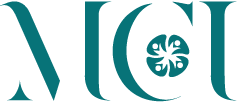
Concerns about non-users being maladjusted are unfounded and unfair.
Recent news stories have suggested that employers may be reluctant to hire people without a Facebook profile on the grounds that Facebook usage has become so common that not having an account is seen as somehow abnormal. This concern appears to have been compounded by a lurid report in a German newspaper that alleged mass killers James Holmes and Anders Behring Breivik did not have Facebook accounts, leading to the rather hysterical conclusion that not having an account “could be the first sign that you are a mass murderer.”
Is there any substance to these concerns? Research suggests that although not having a Facebook account might be unusual nowadays it is hardly cause for alarm. Indeed, the fact that someone has an account is hardly a credential of mental health either, and may be associated with its own problems, admittedly minor ones.
An Australian study examined personality differences between people with and without Facebook accounts (Ryan & Xenos, 2011). People with an account were found to be more extraverted and narcissistic, whereas those without an account were found to be more conscientious and shyer. They found that those without an account experienced more social loneliness, but those with an account experienced more family loneliness. They also looked at time spent on Facebook per day among users and found time spent was positively correlated with neuroticism and loneliness and negatively correlated with conscientiousness. All of these effects tended to be small. These findings seem comparable to those of a study comparing users of Facebook and Twitter respectively which found that people who preferred Facebook tended to be more extraverted and sociable compared to Twitter users, but also more neurotic and less intellectually oriented.
What might this suggest to a potential employer concerned about whether an applicant has a Facebook account or not? On the one hand those who have an account will tend to be more outgoing and less shy, which would be important in jobs involving a great deal of face-to-face interaction. On the other hand, those who do not have an account tend to be higher in conscientiousness, suggesting they are more likely to be hard working, persevering and achievement oriented. In fact, conscientiousness has been found to be one of the strongest personality predictors of job performance across all professions. Furthermore, the more time a day a person spends on Facebook, the less time they are doing actual work and the more time they are likely to be whining about their personal problems. People who do not have a Facebook account also tend to be somewhat less narcissistic, that is, less egotistical and exhibitionistic. Employers concerned about someone not being on Facebook might instead want to consider the desirability of hiring applicants who think that “everything is about me” and who lack a strong work ethic. Narcissism is also a member of what personality psychologists call “the dark triad” of personality, along with such antisocial characteristics as psychopathy and Machiavellianism (Jakobwitz & Egan, 2006). Although there is no evidence that Facebook usage has anything at all to do either way with being a homicidal maniac, the fact that narcissism has a known relationship with antisocial traits would seem to suggest that people who do not have Facebook accounts are actually less likely to commit atrocities. All of these considerations should of course be tempered by the fact that all of the effects reported by these research studies have been small in size. So, looking at things scientifically, knowing that someone does or does not have a Facebook account is not likely to be a strong indicator of the character of the person, and is hardly cause for panic either way.

